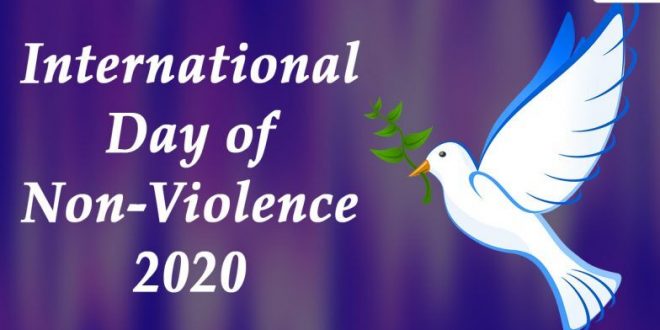AT News
Afghanistan is the epicenter of violence as war and fighting is spiraling out of control, slowly eroding two decades of gains since ouster of Taliban. It is a decisive moment for the country too as the government is negotiating a political settlement with the Taliban.
Today, October 2, is the International Day of Non-Violence, a day attributed to India’s political ethicist Mahatma Gandhi who employed nonviolent resistance against British rule and in turn inspired movements for civil rights and freedom across the world. He was of the firm belief that only a non-violent movement can achieve the highest objective of freedom.
We have comprehended that creed well and have been struggling to negotiate our way into an end to wars. Afghanistan has seen its share of violence and bloody conflicts that ended countless lives and left their imprint on the strained faces and troubled minds of our people. Military occupations, coup d’états, factionalism, fundamentalism and violent insurgency have resulted in the killing of innocent people and the destruction of Afghanistan. We have also been under the plague of totalitarian Taliban’s extremism and insurgency for the past two and half decades and our struggle against violence and radicalism still rages on.
Our situation resembles that of India’s legend Mahatma Gandhi too. As we continue our struggle to end the war and overcome all challenges, there is great scope to draw on lessons from Gandhi’s life. Despite being thrown in jail, nothing ever caused him to abandon his peaceful approach. Our resolve to achieve peace never falters and we continue our efforts to gain the independence and peace we have wanted for years.
Afghanistan’s puzzling peace talks is a test for all of us to redeem dignity, equality and equity to the country. A commitment to dialogue, religious tolerance and morality remain pertinent in our era for millions of Afghans who believe in a peaceful, prosperous and equal Afghanistan.
 Afghanistan Times
Afghanistan Times




